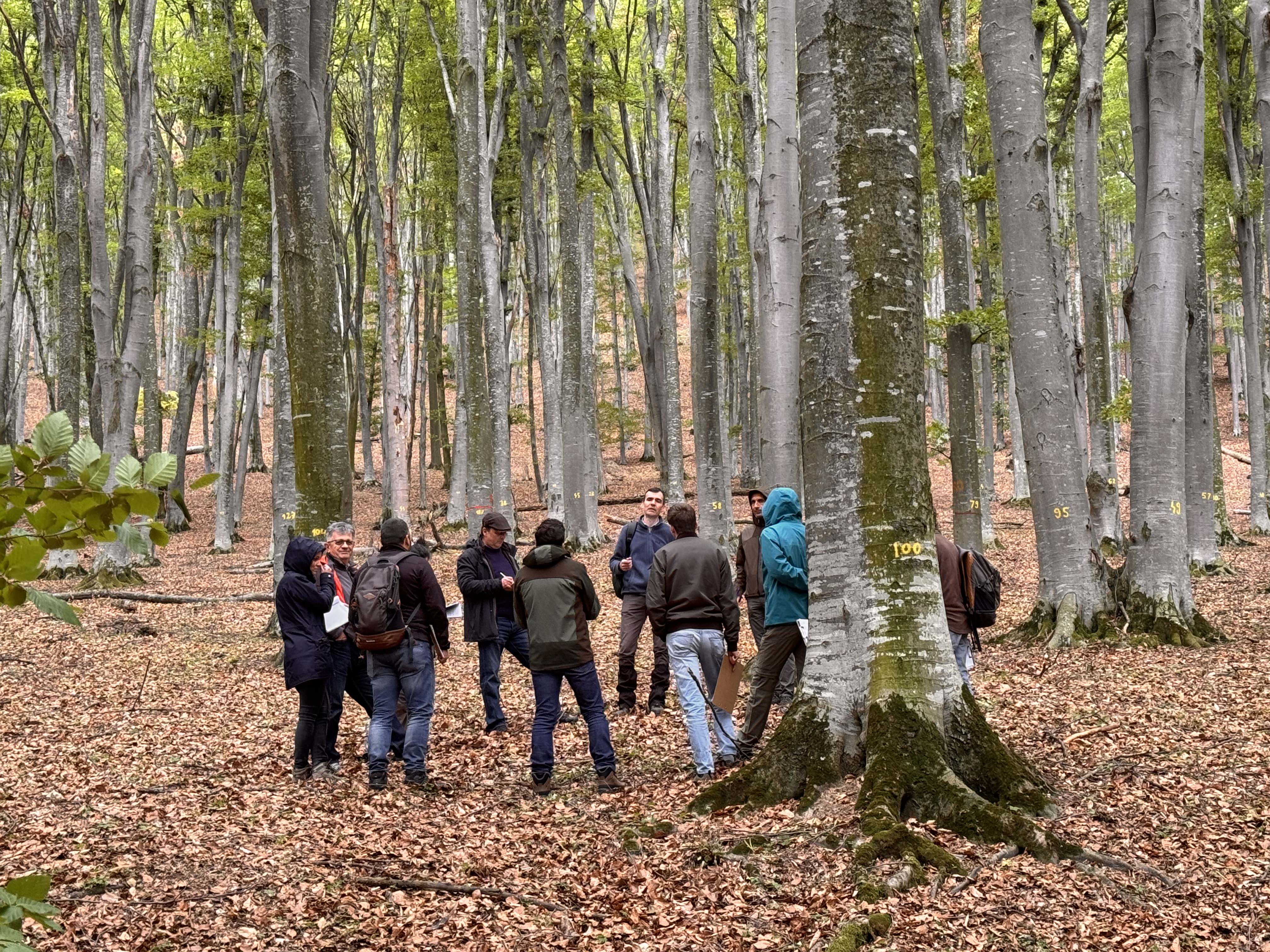ForestPaths demo case workshop explores Climate and Biodiversity-Smart (CBS) forest management in Romania
On 17 May 2024, ForestPaths members from TEES, UTBV and EFI co-organised a demo case workshop with Horizon project SDGs-EYES on forest management practices for climate mitigation and biodiversity conservation. The workshop was held at the Experimental Research Station of the Transilvania University of Brasov including field discussions in the nearby forest where Marteloscope sites were available. The event attracted 18 participants, representing landowners (local community, private - individuals, commons, companies), forest managers (state forest service, local community forest service), control agencies (Forest Guard) and certification systems (FSC Romania).
The workshop began with an introduction to the ForestPaths project and its goal of co-designing Climate and Biodiversity-Smart (CBS) forest management options for Romania. Participants learned about the CBS concept, emphasising the integration of adaptation and mitigation strategies to enhance forest resilience and biodiversity. The meeting continued with field discussions on identifying CBS forest management for Romania. Two Marteloscope sites (a mixed deciduous and a beech stand) were used for field simulations and debates. Later, participants returned indoors and discussed enablers and barriers for each of the identified CBS options.

Image: Demo case workshop participants on a field visit to a mixed forest site with Marteloscope sites.
Most of the traditional forest management rules, namely maintaining natural compositions, using natural regeneration, long rotations, sustained yield principle, etc., imposed for almost a century across the entire forestland regardless of ownership, were considered by participants just as useful for a CBS approach. Some new options, such as modifying species composition and a mixture of provenances, were also proposed. Most of the options are mandatory by state rules and thus enabled by legislation. However, the strict legislation seen as an enabler, without proper incentives or compensations, could soon become a barrier, as owners perceive it as abuse and are willing to ask for legislation changes. Participants identified several barriers to implementation, including the low economic efficiency of existing rules and overly strict legislation. Conversely, they emphasised the importance of financial incentives in most cases and advocated for greater flexibility in forest management rules in others as key enablers for effective implementation.